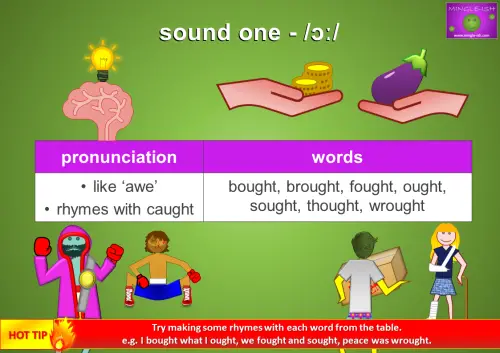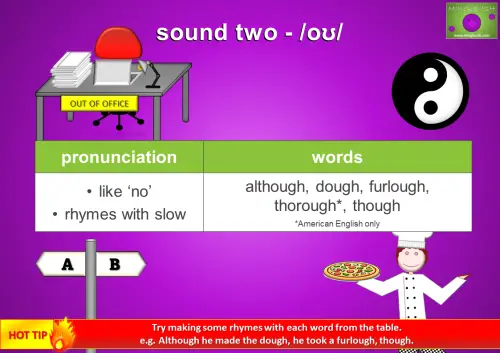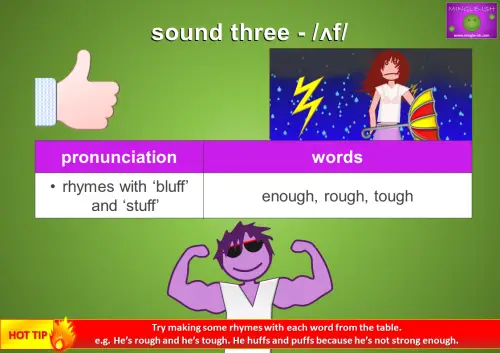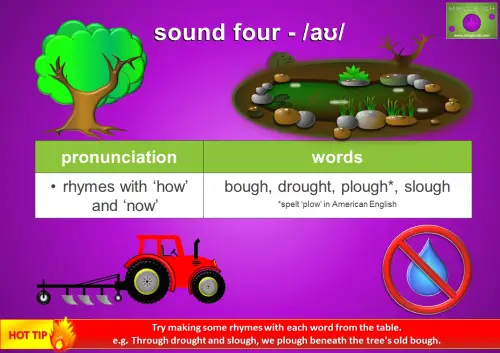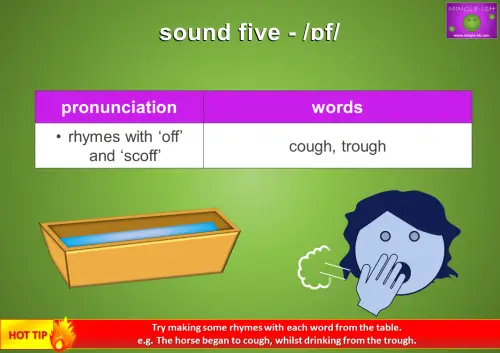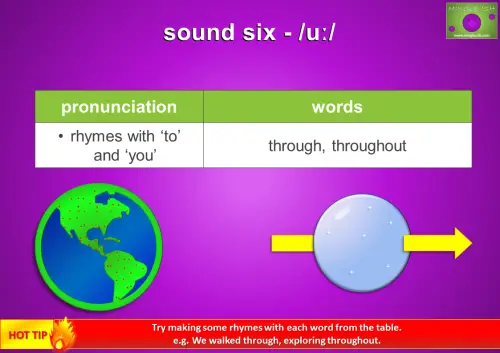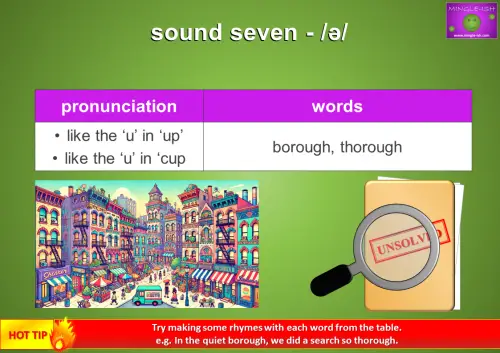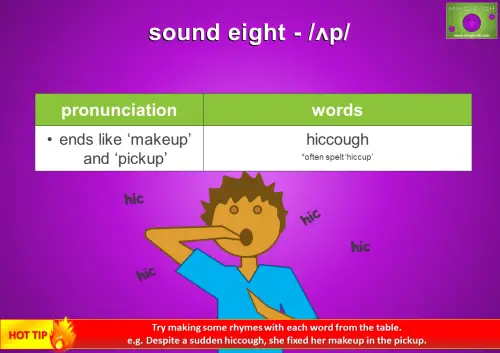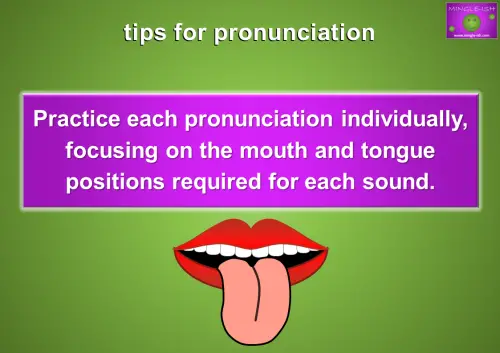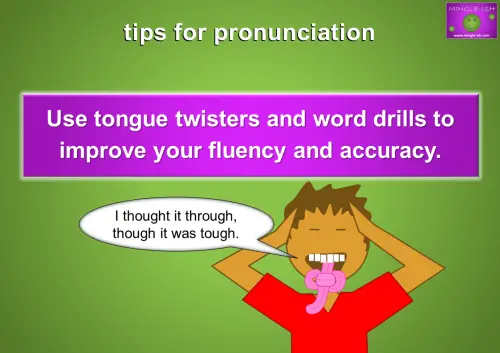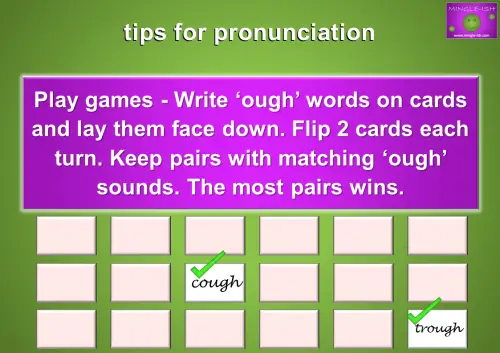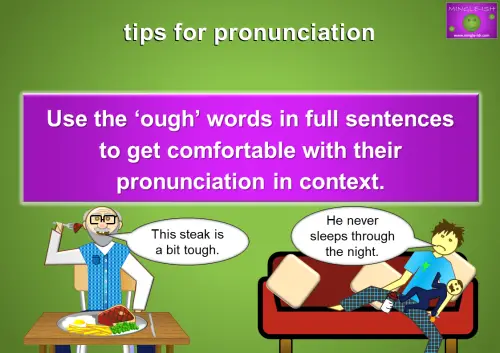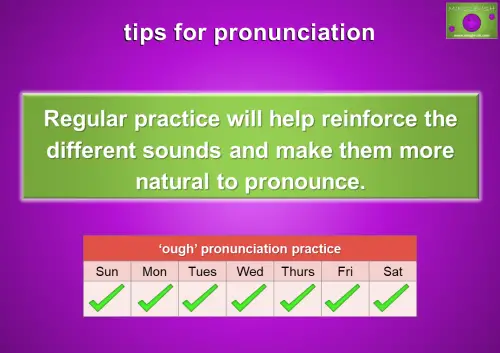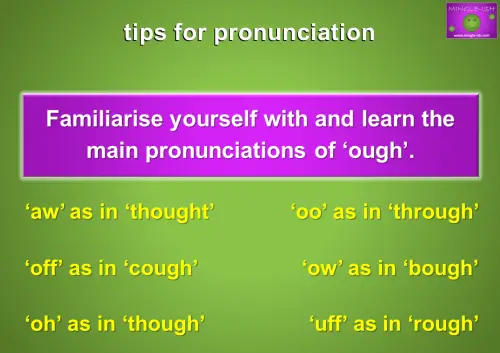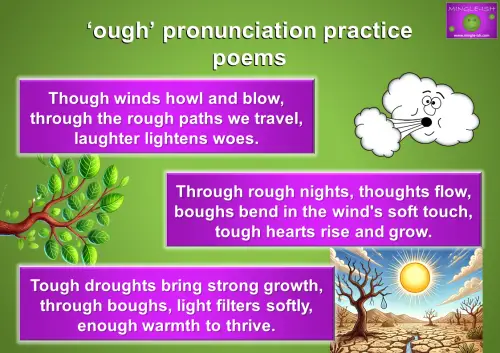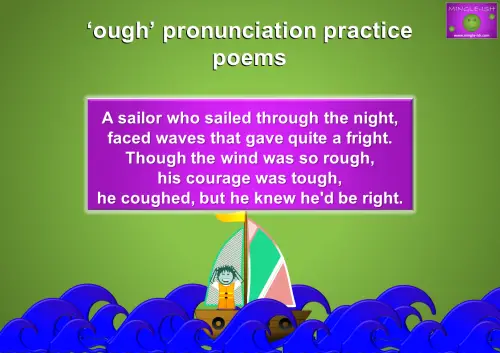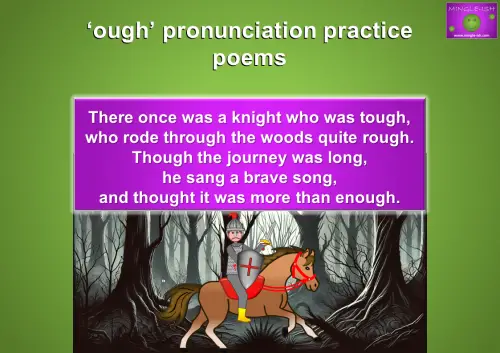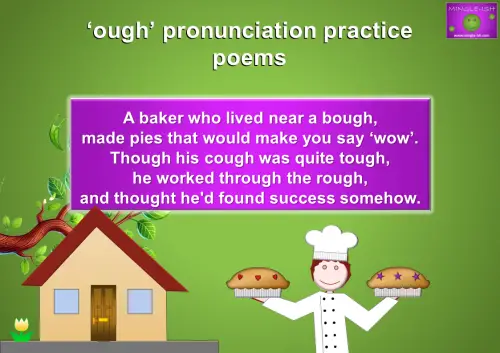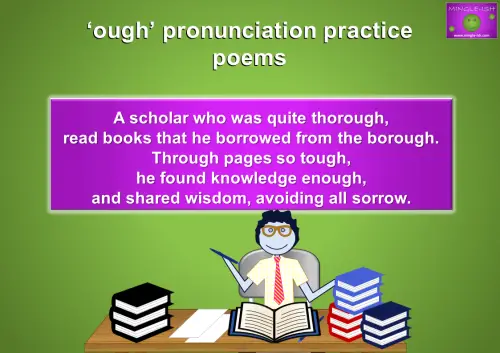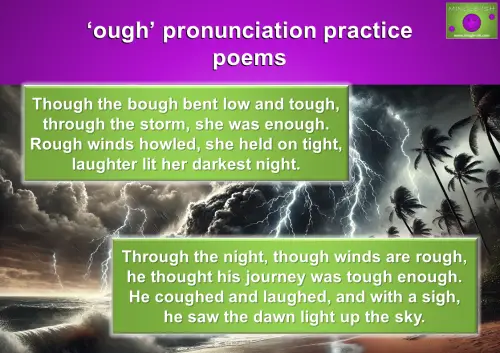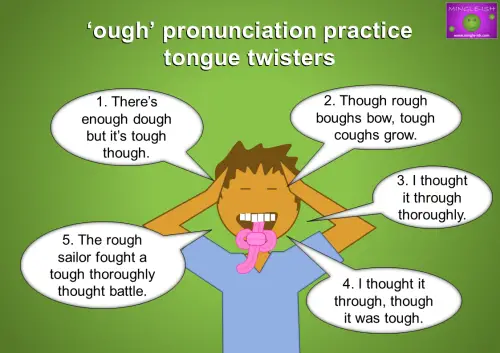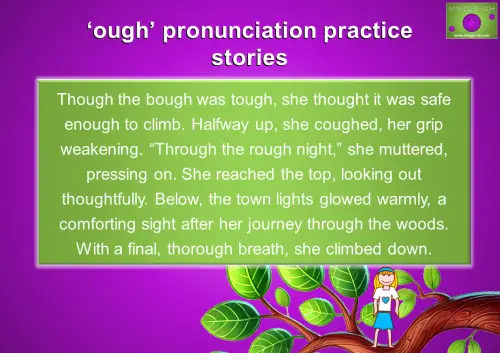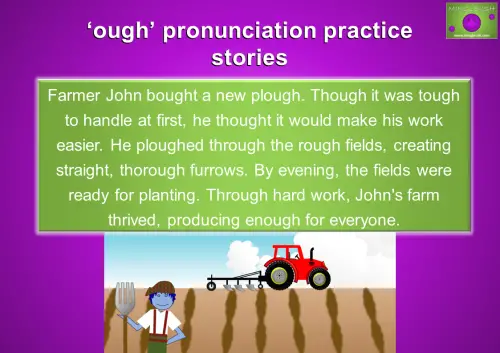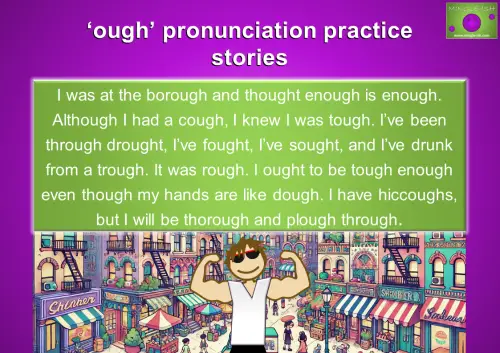Contents
‘Ough’ Pronunciation Introduction
Welcome to our comprehensive guide on pronouncing the “ough” sound in English! This versatile combination of letters can be pronounced in various ways, making it a challenge for English learners. In this guide, we’ll explore the different pronunciations of “ough” and provide tips and exercises to help you master this tricky sound.
What is the ‘ough’ Sound?
What’s the deal with the ‘ough’ sound in English? It’s one of those quirky combos that can really trip you up because it doesn’t have a single pronunciation. Depending on the word, it can sound like ‘uff’ (as in ‘tough’), ‘oh’ (as in ‘though’), ‘aw’ (as in ‘thought’), or even ‘ow’ (as in ‘bough’). It’s like the English language decided to throw us a curveball just for fun! So, let’s dive in and untangle this ‘ough’ mess together.
The ‘ough’ sound is found in many English words, but its pronunciation can vary significantly depending on the word. In some cases, it is pronounced as [ɔː], [ʌf], [əʊ], or [ʌt].
Understanding these variations is key to pronouncing ‘ough’ correctly.
Pronunciation Guide
The ‘ough combination in English can be pronounced in several different ways. Here are some examples of each pronunciation.
Sound 1 – /ɔː/
This sound (/ɔː/) rhymes with the ‘awe’ in awesome, and ‘caught’.
- bought
(the past tense and past participle of the verb buy) - brought
(the past tense and past participle of the verb bring) - fought
(the past tense and past participle of the verb fight) - ought
(a modal verb) - sought
(the past tense and past participle of the verb seek) - thought
(an idea or opinion formed in the mind) - wrought
(shaped or crafted, often through work).
Sound 2 – /oʊ/
This sound (/oʊ/) rhymes with the ‘no’ and ‘slow’.
- although
(a conjunction) - furlough
(permission to be absent from work) - dough
(a mixture of flour and water) - thorough – American English pronunciation only
(complete and detailed) - though
(a conjunction and an adverb)
Sound 3 – /ʌf/
This sound (/ʌf/) rhymes with ‘stuff’ and ‘bluff’.
- enough
(as much or as many as required; sufficient) - rough
(uneven, harsh, or difficult) - tough
(strong or difficult to deal with)
Sound 4 – /aʊ/
This sound /aʊ/ rhymes with ‘how’ and ‘now’.
- bough
(a main branch of a tree) - drought
(a shortage of water) - plough
(a large farming tool) - slough
(a swamp, or muddy area)
Sound 5 -/ɒf/
This sound (/ɒf/) rhymes with ‘off’ and ‘scoff’.
- cough
(sudden, noisy expulsion of air from the mouth) - trough
(a long, narrow container for animals)
Sound 6 – /uː/
This sound (/uː/) rhymes with ’to’ and ‘you’.
- through
(moving in one side and out of the other side) - throughout
(in every part of)
Sound 7 – /ə/
This sound (/ə/) sounds like the ‘u’ in ‘up’ and ‘cup’.
- borough
(a town, district, or an administrative division within a city) - thorough
(complete with great attention to detail)
sound 8 – /ʌp/
This sound (/ʌp/) sounds like the end of makeup and pickup.
- hiccough
(involuntary spasm of the diaphragm causing a sudden intake of breath)
English can be tricky with all these variations, but knowing these can help with pronunciation!
tips for pronunciation
Mastering the pronunciation of the “ough” sound in English can be tricky due to its multiple variations. To help you navigate these complexities, here are some general tips:
- Practice each pronunciation individually, focusing on the mouth and tongue positions required for each sound.
- Listen to native speakers as much as you can and copy their pronunciation to develop a natural accent.
- Listen to native speakers and repeat after them. Use online resources like YouTube or language learning apps.
- Play games – Write ‘ough’ words on cards and lay them face down. Flip 2 cards each turn. Keep pairs with matching ‘ough’ sounds. The most pairs wins.
- Record your pronunciation and compare it with native speakers.
- Use the ‘ough’ words in full sentences to get comfortable with their pronunciation in context.
- Regular practice will help reinforce the different sounds and make them more natural to pronounce.
- Familiarise yourself with and learn the main pronunciations of ‘ough’.
By practicing these tips, you can master the various pronunciations of “ough” in English! Here’s a video of the tips if you want a quick re-cap
Fun Exercises to Master ‘OUGH’ Pronunciation
Now that you’ve learned about the various ways to pronounce the tricky “ough” sound, it’s time to put your skills to the test with some fun exercises. These activities will help reinforce what you’ve learned and make those pronunciations feel more natural. Ready to dive in? Let’s make “ough” words a breeze to say!
Firstly, watch this listen and repeat video.
Check out these poems in the pictures below and practice reciting them aloud. Give them a try and see how quickly you can perfect each line!
Now test yourself with a few tongue twisters.
Finally, a few stories featuring many ‘ough’ words.
How do you think you did? Watch the video below and find out!
Here’s another short video activity for you.
conclusion
Mastering the “ough” sound in English pronunciation may take time and practice, but with dedication and the right techniques, you can achieve fluency. Use this guide as a resource to enhance your pronunciation skills and confidently navigate words with the “ough” sound in English.
additional resources
Thank you for exploring our guide on mastering the pronunciation of ‘ough’ words in English! We hope you found the tips and examples helpful.
For more pronunciation tips and tricks, be sure to visit our other pages:
- Pronunciation of Silent Letters: Learn how to navigate silent letters in English.
- Vowel Sounds in English: Master the various vowel sounds with our detailed tutorials.
- ‘oo’ Pronunciation: Learn the many different ways we pronounce this double vowel sound.
Keep practicing and enhancing your English pronunciation skills with our resources. Don’t forget to like, comment, and share this page if you found it useful. Happy learning!
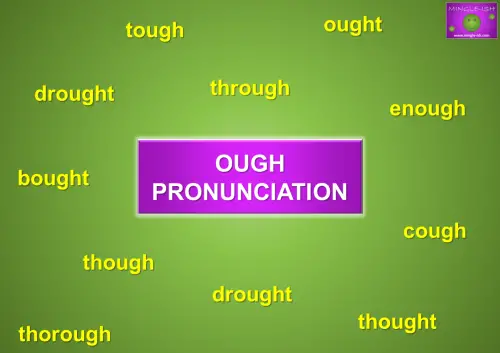
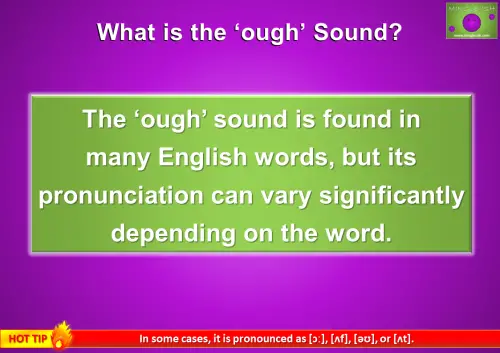
![Picture explaining the pronunciation variations of the 'ough' sound in English. The image includes examples such as 'tough' (uff), 'though' (oh), 'thought' (aw), and 'bough' (ow). The title reads 'What is the ‘ough’ Sound?' with a description below it. A hot tip at the bottom mentions other pronunciations, stating: 'In some cases, it is pronounced as [ɔː], [ʌf], [əʊ], or [aʊ].](https://mingle-ish.com/wp-content/uploads/2024/06/What-is-the-‘ough-Sound2-500x353.png)
